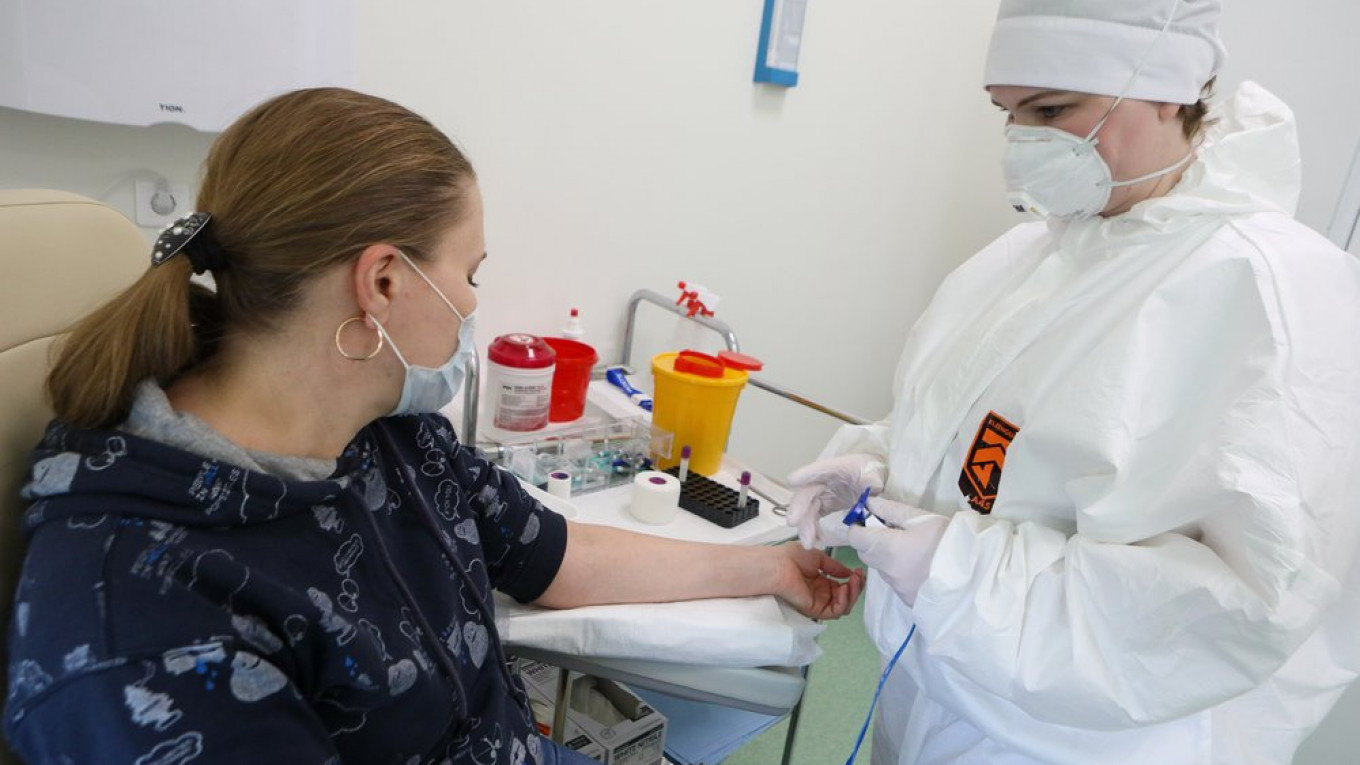Russia has become the first country to approve a vaccine against the coronavirus, President Vladimir Putin said Tuesday despite widespread concerns about its safety.
Russia, which has the world's fourth-highest coronavirus caseload, is one of several countries racing to develop a vaccine to halt the disease that has killed more than 740,000 people and slammed the global economy.
Here’s what we know so far about the Russian vaccine, dubbed “Sputnik V” in a nod to the Soviet Union’s 1957 launch of the world’s first space satellite that triggered the Space Race:
Who made it?
— The state-run Gamaleya Research Institute in Moscow in coordination with the Russian Defense Ministry and the Russian Direct Investment Fund (RDIF).
— The RDIF and its partners have invested 4 billion rubles ($55 million) in the project.
— The vaccine underwent two phases of trials in June and July: The first involving 38 civilians and 38 military volunteers and the second involving 100 people.
— Phase 3 trials, which will involve several thousand participants, began with the shot’s registration Tuesday. They will also be carried out in countries including Saudi Arabia, the United Arab Emirates and the Philippines, according to RDIF head Kirill Dmitriyev.
— The World Health Organization (WHO)’s overview from on July 31 lists the vaccine as still being in Phase 1.
How does it work?
— The vaccine is a so-called viral vector vaccine, meaning it employs another virus to deliver small parts of a pathogen and stimulate an immune response.
— It is an injection solution based on the adenovirus, the common cold. China’s CanSino is developing a similar technology with its coronavirus vaccine prototype.
Who has taken it so far?
— Gamaleya chief Alexander Gintsburg and the institute's scientists have inoculated themselves with the vaccine. Experts criticized their move as an unorthodox and rushed way of starting human trials.
— Dmitriyev has said he and his family have also taken the vaccine.
— Putin said Tuesday that one of his daughters, whose identity he has neither confirmed nor denied to date, has already taken the vaccine. He said the only side effect she experienced was a high temperature of 38 degrees Celsius for one day.
— “Several hundred” members of Russia’s political and business elite may have been inoculated with the experimental vaccine as early as April, Bloomberg reported in July. Some participants reported experiencing fever and muscle aches after receiving the shots, while one unnamed top executive said he had no side effects.
Is it safe?
— Its developers tout the vaccine as safe and Putin on Tuesday said it is “quite effective” and “gives sustainable immunity,” citing his daughter’s response to the shot.
— Scientists in the West have raised concerns over the speed of development of Russian vaccines, suggesting that researchers might be cutting corners after coming under pressure from the authorities to deliver.
— Russian virologists have also warned that the vaccine could be dangerous for people who have antibodies against the virus.
— The World Health Organization last week urged Russia to follow established guidelines and go "through all the stages" necessary to develop a safe vaccine. On Tuesday, it said a stamp of approval on the vaccine candidate would require a rigorous safety review of trial data.
— Russian Health Minister Mikhail Murashko said clinical trials involving several thousand participants would continue.
When will it be available to the public?
— A registration certificate on the Russian Health Ministry website notes that the vaccine will enter civilian circulation on Jan. 1, 2021.
— Tatyana Golikova, a deputy prime minister in charge of health issues, said officials hoped that vaccinations of medical workers could begin by late August or early September.
— RDIF’s head Dmitriyev said a mass vaccination campaign will begin among volunteers in Russia in October, a month after industrial production is expected to launch. Twenty countries have pre-ordered more than 1 billion doses, he said.
AFP contributed reporting.
A Message from The Moscow Times:
Dear readers,
We are facing unprecedented challenges. Russia's Prosecutor General's Office has designated The Moscow Times as an "undesirable" organization, criminalizing our work and putting our staff at risk of prosecution. This follows our earlier unjust labeling as a "foreign agent."
These actions are direct attempts to silence independent journalism in Russia. The authorities claim our work "discredits the decisions of the Russian leadership." We see things differently: we strive to provide accurate, unbiased reporting on Russia.
We, the journalists of The Moscow Times, refuse to be silenced. But to continue our work, we need your help.
Your support, no matter how small, makes a world of difference. If you can, please support us monthly starting from just $2. It's quick to set up, and every contribution makes a significant impact.
By supporting The Moscow Times, you're defending open, independent journalism in the face of repression. Thank you for standing with us.
Remind me later.






